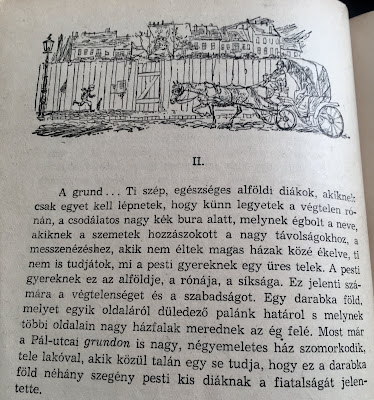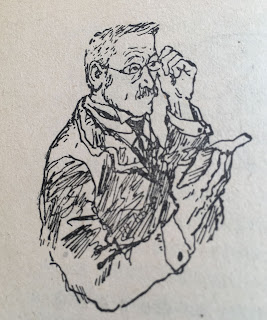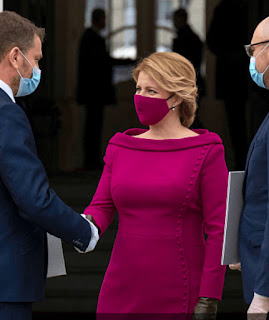Not all post-war architects were quite as bad as the ghastly Ernö Goldfinger, who was so certain he was right about absolutely everything that he did not content himself with vandalistically removing Victorian mouldings when renovating an old warehouse for use as the headquarters of the Communist Party's newspaper in London, but installed very low lavatories because he was convinced that the nearer users got to squatting the better would be the users' bowel evacuation - needless to say the hapless journalists who had to use them did not agree at all. Still, judging by the account given by one planner of his visit to a pit village near Bishop Auckland, which he described as looking "nearer to hell than anything I had seen since Belsen", more than a whiff of out-with-the-old-in-with-the-new-sweep-all-before-us zealotry does seem to have been in the air more generally (I just cannot accept that, unless your vision was skewed by an oddly doctrinal perspective, even the worst pit village could have come anywhere near Belsen in hellishness).
 |
| Someone on Twitter sent me these pictures of Brutalist sandcastles - Goldfinger would be delighted |
What I find really distressing at the moment though is the fact that, according to Kynaston, very few people wanted the kind of housing they are now stuck in. In one survey he cites, which went on to be totally ignored by planners and architects alike, a mere 15 per cent of those interviewed said they might be willing to live in a flat. But "who cares what the population think" seems to have been the view of those with authority - thus the frightful Broadmead shopping centre was plonked down in Bristol, despite 13,000 people requesting that the old shopping centre be reinstated and only 400 expressing a wish for the proposed new one.
A Tory backbencher called Cuthbert Headlam, (surely a member of the Drones Club in his youth), does seem to have seen the dangers of this sort of thing but his tone reflects the fear of seeming old fashioned that was, I suspect, a major factor in post-war life. Headlam tried to raise objections to a particularly noxious piece of redevelopment legislation, telling the Commons, "I have an instinctive distrust of planners and always feel that 'planning' merely makes confusion worse confounded - but then I am out of date, and prefer things to grow up in their own way."
How much lovelier Britain would be today, if Headlam had been in charge - but, as I say, I have the impression that post-war you had to be almost egomaniacally certain that you were right if you wanted to beat the clamouring forces advocating modernity; it was as if modernity was interchangeable with virtue.
Which I suppose is why there are now so many poor souls cooped up in highrise low-ceilinged apartments without balconies, (let alone their own little scrap of garden to go out into). My heart goes out to those people, especially as they could have been housed much more comfortably, in accommodation that would not make this lockdown experience worse than it already is - they could have been, but instead they are victims of the stubborn, undemocratic imposition of idiotic doctrines that anyone with commonsense could see were stupid and which were imposed against the wishes of those forced to exist within the resulting buildings.
 |
| Arlington House, Margate, which has the added advantage for its inhabitants of being placed on the seafront but facing away from the sea |
For distraction and a kind of bitter edification, I encourage anyone living in a flat without any access to the outdoors, perhaps 10 stories up, in a building with a lift that doesn't function to watch Our Friends in the North. It is a great series and at least it demonstrates that some people - the writers of the series - understood the great wrong that was done when professional know-it-alls decided to destroy communities and erect what they devoutly believed would be marvellous "towns in the sky".






















